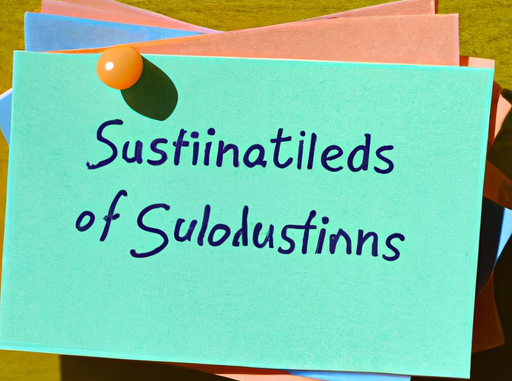
Title: The Rise of Environmental Education: How Schools are Integrating Sustainability into Curriculums
In recent years, the importance of environmental education has soared as concerns about climate change, sustainability, and ecological preservation have become more urgent. Schools around the world are responding to these global challenges by integrating sustainability into their curriculums, fostering a generation of environmentally conscious individuals prepared to tackle some of the most pressing issues facing our planet. This shift towards environmental education is not only transforming educational practices but also reshaping the values and priorities of future leaders.
A Growing Need for Environmental Literacy
The scientific consensus on climate change underscores the need for society to adapt and mitigate its impacts. As young people today will be the ones facing the long-term consequences, it is crucial for education systems to equip them with the knowledge and skills to understand and address environmental issues. Environmental education aims to cultivate environmental literacy, empowering students to make informed decisions and adopt sustainable practices both personally and professionally.
Integrating Sustainability into Curriculums
Schools are adopting a variety of approaches to integrate sustainability into their curriculums. These efforts include:
Interdisciplinary Learning: Environmental education often transcends traditional subject boundaries, incorporating elements of science, geography, social studies, and even arts. This interdisciplinary approach helps students see the interconnectedness of ecological systems and human activities.
Project-Based Learning: Many schools are embracing project-based learning to engage students in real-world environmental challenges. This method encourages critical thinking and problem-solving as students work on projects like designing sustainable gardens, conducting energy audits, or developing campaigns to raise awareness about recycling.
Outdoor Education: Immersive experiences in nature can significantly enhance students’ understanding of ecological concepts. Schools are increasingly utilizing outdoor classrooms and field trips to natural sites, allowing students to observe ecosystems and biodiversity first-hand.
Sustainability Initiatives: Schools themselves are becoming models of sustainability by implementing eco-friendly policies such as reducing waste, conserving energy, and promoting recycling. Students are often involved in these initiatives, which not only improves their environmental literacy but also instills a sense of responsibility and stewardship.
The Role of Teachers and Educators
Teachers play a pivotal role in the successful integration of environmental education. Professional development and training programs focused on sustainability are essential for equipping educators with the tools and confidence to effectively teach these subjects. Moreover, partnerships with environmental organizations and access to resources like online platforms and educational materials can further support teachers in delivering impactful lessons.
Challenges and Opportunities
While the rise of environmental education presents significant opportunities, challenges remain. Schools often face constraints such as limited resources, curriculum demands, and varying levels of support from educational authorities. Overcoming these challenges requires a concerted effort from policymakers, educational institutions, and communities to prioritize environmental literacy as a cornerstone of education.
A Future of Sustainable Leadership
By embedding sustainability into education, schools are not only preparing students for future careers in green industries but also nurturing a generation that values and advocates for the health of our planet. As these students become leaders, their environmental consciousness will influence business practices, governance, and community initiatives, driving progress towards a more sustainable future.
In conclusion, the rise of environmental education signifies a transformative shift in how we prepare young people for the future. As schools continue to integrate sustainability into their curriculums, they are fostering a new generation equipped to navigate and address the environmental challenges that lie ahead. This commitment to environmental education is not just an investment in students’ futures but also in the future of our planet.
PhDr. Pavel Bartoš, LL.M., DBA (Evropská akademie vzdělávání / European Academy of education)
Leave a Reply